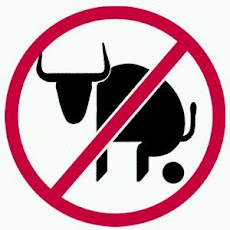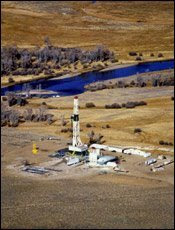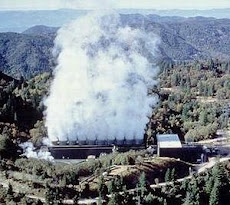No big suprize there
NCBA and THE PUBLIC LANDS COUNCIL OPPOSE GRAZING BUYOUT PROGRAMS
NCBA Staff Contact:
Jeff Eisenberg, Director of Federal Lands, and Executive Director, Public Lands Council
202-347-0228
jeisenberg@beef.org
Summary:
The National Cattlemen’s Beef Association (NCBA) and Public Lands Council (PLC) oppose any national proposal to buy out federal grazing permits or systematically reduce animal-unit-months (AUMs) on federally managed lands. NCBA and PLC are committed to the multiple-use management of public lands, and value the benefits that livestock grazing has been shown to contribute across a variety of landscapes.
Livestock operations in these rural areas contribute to the management of the land and enhance the economic base of ranching communities. NCBA and PLC continue to work toward strengthening public lands ranching with leaders in Congress and in the Administration.
Background:
For more than a century, American ranchers across the West have depended on rangelands for their livelihoods and have devoted themselves to sustaining healthy landscapes. However, the grazing operations throughout the West benefit more Americans than simply the ranchers that depend upon them. Well-managed livestock grazing accomplishes the following:
· Increases the diversity and productivity of rangelands and wildlife populations,
· Preserves open spaces and cultural traditions throughout the West, and
· Sustains the economies of rural communities.
A coalition of radical environmental groups is behind the National Public Lands Grazing Campaign, an effort to stop grazing on Public Lands. The Campaign is trying to get legislation passed that would provide a federal grazing allotment buyout program.
The buyout proposal is being framed by the Campaign as “recognizing the economic issues faced by ranchers,” and offers an option out of the business. The Campaign has sent letters outlining the proposal to 25,000 grazing permit holders across the country. The proposal offers:
“a federal grazing permittee or lessee to relinquish their entire permit/lease back to the federal government in exchange for compensation of $175 per animal unit month based on the average grazing use over the last ten years the allotment was grazed as stipulated by the permit/lease and paid for by the permittee or lessee or their predecessor(s).”
Years of grazing nonuse would be excluded from this average. The permittee/lessee would no longer be liable for paying grazing fees under the retired permit/lessee, and the associated grazing allotment would be permanently retired from domestic livestock grazing and the forage reallocated to native wildlife.
Efforts, such as this one, to eliminate public lands grazing ignore the realities of the rural West.
The benefits of grazing are supported by law. The Multiple-Use Sustained-Yield Act of 1960 (Public Law 86-517) was enacted to authorize that federal lands “be managed under principles of multiple use and to produce a sustained yield of products and services, and for other purposes.” The Act recognizes grazing as one of six uses for which federal lands are to be managed.
Small towns in places like Mackay, Idaho, Adel, Oregon, and Rock Springs, Wyoming depend upon public lands ranchers as community members, tax payers, and citizens. Elimination of grazing eliminates ranchers and attacks the western way of life.
Eliminating grazing permits on federal lands through buyout programs and systematic reduction of AUMs cause losses to the whole livestock industry, not just individual ranchers. Federal lands account for around one third of the total livestock grazing acreage in the U.S. Therefore, maintaining a viable public lands ranching community and vibrant landscape impacts citizens from across United States. Elimination of permits on public lands reduces acreage available to ranchers. Permits eliminated in a buy out cannot be reclaimed by other ranchers, reducing business opportunities and profit potential in agriculture.
Losing ranches means losing opens space. The West has the fastest rate of migration into nonmetropolitan areas, according to USDA. Public lands ranchers own an estimated 107 million acres across the West. Most of this land adjoins public land, holds water and valuable natural resources and provides contiguous habitat for species on public lands. Maintenance of successful grazing programs on public lands allows ranchers to keep their private lands open for agricultural production rather than selling land for development. The USDA Forest Service lists the loss of habitat on private land adjoining National Forests as one of the four major threats to their land management goals. Efforts to eliminate grazing will result in loss of open space and natural habitat provided by public lands ranchers and ultimately degrade public lands.
The federal agencies and public lands ranchers are partners in grazing management. Without ranchers on the ground, agencies would be unable to complete their management duties. Well-managed grazing is shown to be beneficial to rangeland ecosystems. Grazing programs are compatible with the multiple-use mandate of public lands and meet the ecological goals of land managers.
Key Points:
· NCBA and PLC focus on improving livestock grazing on federal lands and oppose any programs intended to permanently retire or vacate federal grazing permits.
· NCBA and PLC are committed to the multiple-use management of public lands, and value livestock grazing for the variety of benefits it has been shown to contribute across a variety of landscapes.
· Grazing on public lands is an important part of the western livestock industry. Ranching is the foundation for small towns across the West, and the continued longevity of the ranching community depends upon access to grazing lands.
· Buyout programs will cause a loss of open space and natural habitat across the West by putting ranchers out of business. Public lands ranchers control 107 million acres of private land across the West. Eliminating ranches through buy out programs will cause the sale of these lands for development.
· NCBA/PLC opposes buyout programs aimed at removing cattle and sheep from the lands. We oppose any federal incentives to eliminate grazing allotments or other parts of the infrastructure needed for livestock production on federal lands to succeed. In particular, we oppose the buyout proposal floated by the National Public Lands Grazing Campaign.
For more information, visit: http://www.thepubliclandscouncil.org
http://www.beefusa.org/goveGrazingPermitBuyouts.aspx
Saturday, February 6, 2010
Subscribe to:
Post Comments (Atom)



















No comments:
Post a Comment